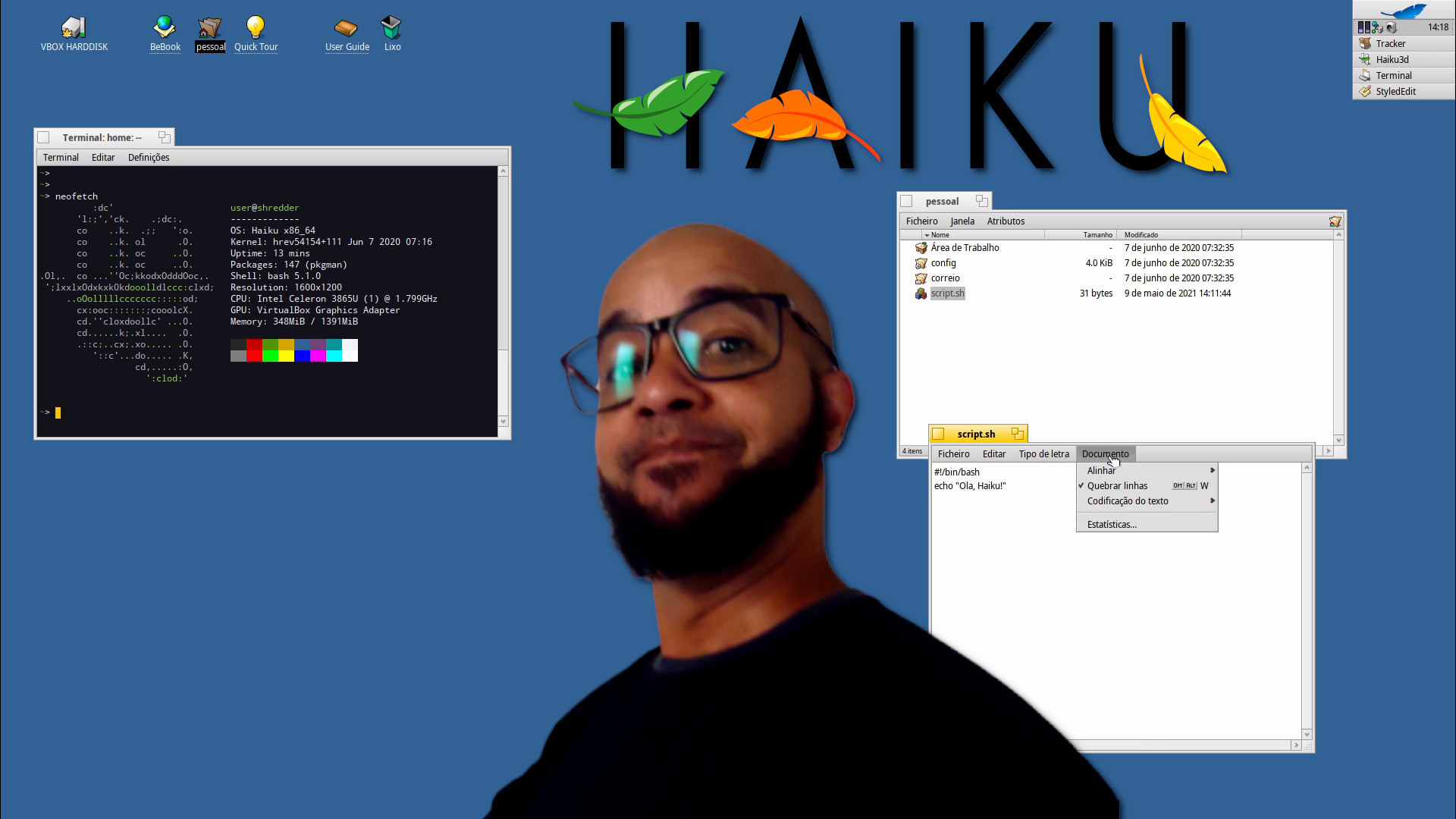Meet Haiku, an Operating System written in C++
The old OpenBeOS that provides an object-oriented API.

Haiku OS, formerly known as OpenBeOS, is an open source operating system written in C++ that provides an object-oriented API.
Its development started in 2001 and became self-hosting in 2008. The first alpha version was made in September 2009, and the first most recent beta version in September 2018; development remains active in 2018, with “nightly images”.
Haiku is supported by Haiku, Inc., a nonprofit organization under siege in Rochester, New York, USA, founded in 2003 by former project leader Michel Phipps.
The name “Haiku” was chosen for the project in order to avoid misuse of a trademark now owned by Palm and aims to reflect the elegance and simplicity that attracted several users, in addition to being a direct reference to the error messages displayed in the Japanese haiku poetic form by the NetPositive browser and other Be programs.
The modular construction that teams of volunteer programmers independently work on replacing servers and APIs (known in Haiku as “kits”). Teams include:
- App/Interface - which includes interface kits, applications and support;
- BFS - Be File System), almost complete task, with the OpenBFS system used not only by Haiku but also by SkyOS;
- Game - which develops the kit for games and their APIs;
- Input Server - the server that manages input devices such as keyboards, mice and how they communicate with other parts of the system;
- Kernel - the core of the operating system;
- Media - developing the audio server and related APIs;
- Network, OpenGL, Translation and other teams.
Some kits were considered complete and the others are in different stages of development.
- The official website is: https://www.haiku-os.org/
- The download can be done at: https://www.haiku-os.org/get-haiku/ and is currently in version R1 Beta 2
Watch the video
The video is in Brazilian Portuguese, but you can use subtitles(that have been duly reviewed) and translate into your language.
Comments